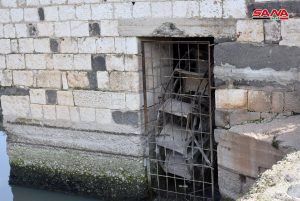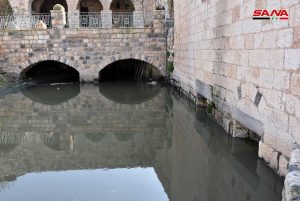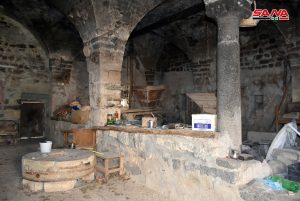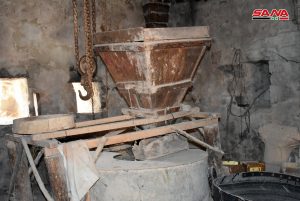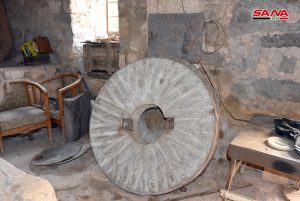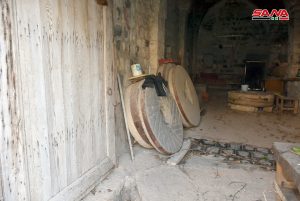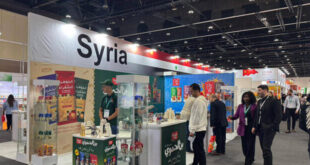Hama, SANA- Hama province has been always famous for its archeological watermills since the first century B.C. as they have been used near the rivers, creeks, springs and ever-flowing falls and some of them still exist today on the banks of the Orontes River adding an aesthetic value to the city.
Ancestors took advantage of the river’s life-giving character and built a system having archaic pump stations in the form of giant wooden watermills.
The watermill uses the energy derived from the flow of a river. The most common use of water mills historically and in modern day is for grinding grains into flour. These are called gristmills, corn mills or flour mills. Early wheel design in ancient times employed horizontal paddles. The paddle is attached via a shaft to a runner stone that grinds against a fixed “bed” stone.
The watermill uses hydropower. It is a structure that uses a wooden waterwheel or water turbine to drive a mechanical process such as milling (grinding), rolling, or hammering. Such processes are needed in the production of many material goods, including flour, Director of Hama Antiquities Department Abdul-Qader Firzat told SANA.
Firzat added that the watermill performs the function of moving water from a lower elevation to a higher elevation, indicating that watermills are different with regard to their hugeness and the shape of their wheel.
One major way to classify watermills is by the wheel’s orientation (vertical or horizontal), one powered by a vertical waterwheel through a gear mechanism, and the other equipped with a horizontal waterwheel without such a mechanism, Firzat clarified.
He indicated that most watermills in Hama are modern and they have three types which are called al-Shibiya, al-Jaiba and al-Jugliyia, the last is the most advanced one as it consists of two stories, the lower one contains the mill’s engine and an upper story that contains the grinding hall, stones, grains store and a barn.
Ruaa al-Jazaeri
 Syrian Arab News Agency S A N A
Syrian Arab News Agency S A N A

